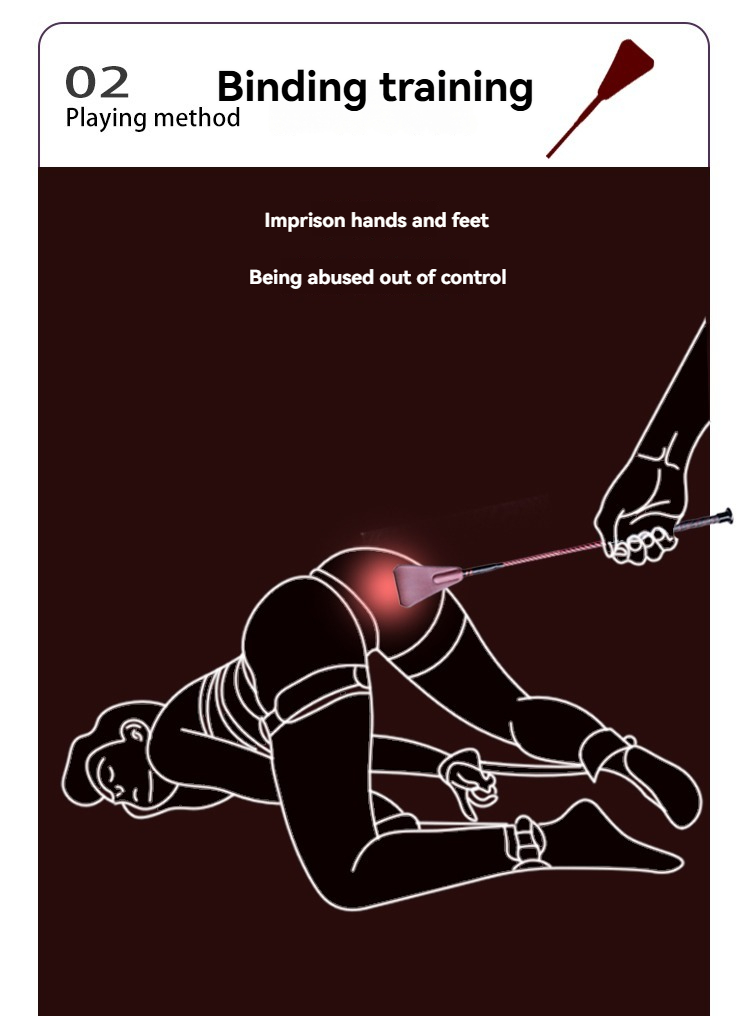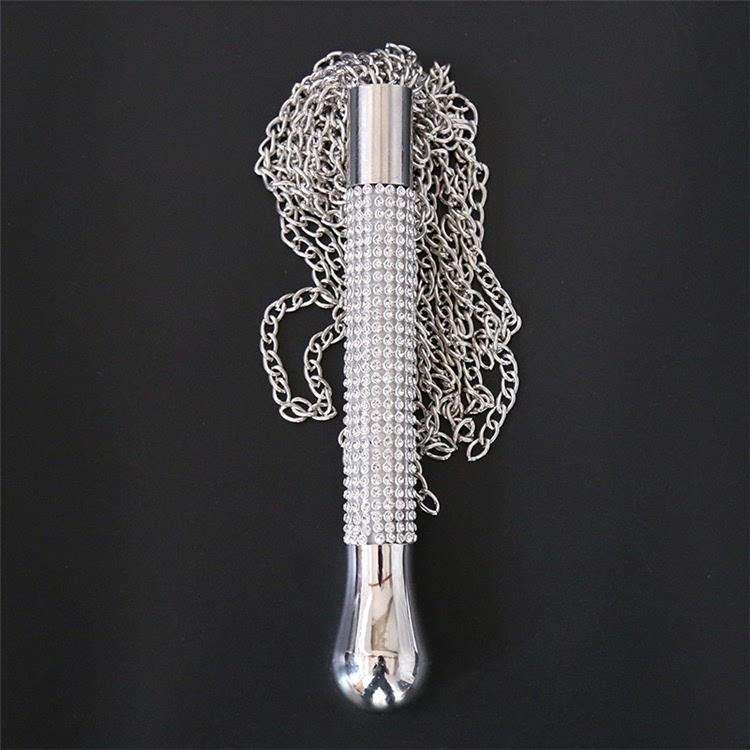Breakthrough Solutions: Overcoming Intimacy Issues for Gay Men

Key Takeaways-Breakthrough Solutions: Overcoming Intimacy Issues for Gay Men
- Intimacy issues in gay relationships can stem from various factors, including societal pressures, communication barriers, and personal insecurities.
- Effective communication and mutual understanding are essential for overcoming intimacy challenges.
- Therapeutic interventions, such as couples therapy, can provide valuable tools and strategies for enhancing intimacy.
- Incorporating intimacy-enhancing products from sextoyforyou.com can help strengthen emotional and physical connections.
- Building a supportive network and fostering self-awareness are crucial steps in resolving intimacy issues.
Table of Contents
- Introduction
- Understanding Intimacy Issues in Gay Relationships
- Common Causes of Intimacy Issues
- Effective Strategies for Overcoming Intimacy Issues
- Therapeutic Interventions and Support
- Intimacy-Enhancing Products and Their Benefits
- Case Studies
- Comparison of Intimacy Solutions
- Conclusion
- Frequently Asked Questions (FAQs)
- References
Introduction
Intimacy is a fundamental component of any romantic relationship, serving as the glue that binds partners together through emotional closeness, trust, and mutual understanding. For gay men, navigating intimacy can present unique challenges influenced by societal norms, personal insecurities, and the dynamics of their relationships. Overcoming intimacy issues is crucial for maintaining a healthy and fulfilling partnership.
This comprehensive guide delves into the various intimacy issues that gay men may encounter, exploring their underlying causes and providing breakthrough solutions to address and overcome these challenges. By understanding the root causes and implementing effective strategies, couples can enhance their emotional and physical connections, fostering a deeper and more resilient relationship.
Whether you’re experiencing difficulties in communication, struggling with trust issues, or seeking ways to reignite the passion in your relationship, this guide offers valuable insights and actionable steps to help you overcome intimacy issues and build a stronger, more intimate bond with your partner.
Understanding Intimacy Issues in Gay Relationships
Defining Intimacy
Intimacy in relationships encompasses a range of emotional and physical connections that contribute to a sense of closeness and bonding between partners. It involves sharing personal thoughts, feelings, and experiences, as well as engaging in physical affection and sexual activities. Intimacy is not solely about physical closeness; it also includes emotional support, trust, and mutual understanding.
In gay relationships, intimacy takes on additional layers influenced by societal attitudes, cultural expectations, and the unique dynamics of same-sex partnerships. Understanding these nuances is essential for addressing intimacy issues effectively.
The Role of Intimacy in Relationships
Intimacy plays a crucial role in the overall health and satisfaction of a relationship. It fosters a deep emotional connection, enhances communication, and builds trust between partners. A high level of intimacy contributes to greater relationship satisfaction, resilience, and longevity. Conversely, a lack of intimacy can lead to feelings of loneliness, disconnection, and dissatisfaction, ultimately threatening the stability of the relationship.
In gay relationships, where societal acceptance and support can vary widely, maintaining intimacy can be particularly challenging but equally rewarding. The ability to overcome intimacy issues strengthens the bond between partners, creating a more fulfilling and harmonious relationship.

Common Causes of Intimacy Issues
Societal Pressures and Stigma
Societal pressures and stigma can significantly impact intimacy in gay relationships. Despite increasing acceptance, many gay men still face discrimination, prejudice, and societal expectations that can create stress and strain on their relationships. These external pressures can lead to internalized stigma, affecting self-esteem and the ability to connect deeply with a partner.
Research by Meyer (2003) highlights that minority stress, stemming from societal stigma, can adversely affect mental health and relationship dynamics in gay men. This stress can manifest as anxiety, depression, and a sense of isolation, which in turn can hinder the development and maintenance of intimate connections.
Communication Barriers
Effective communication is essential for building and maintaining intimacy, but it can be challenging to achieve in any relationship. In gay relationships, communication barriers may arise from differing communication styles, unresolved conflicts, or a lack of open dialogue about emotional and sexual needs.
Rempel, Holmes, and Zanna (1985) emphasize that communication breakdowns can lead to misunderstandings, unmet needs, and decreased emotional closeness. Without clear and honest communication, couples may struggle to express their feelings, desires, and concerns, leading to a decline in intimacy and connection.
Trust Issues
Trust is a cornerstone of intimacy, and any breach of trust can have severe implications for a relationship. Trust issues in gay relationships can stem from past experiences, such as infidelity or betrayal, as well as external factors like societal judgment and lack of support.
Trust issues can lead to insecurity, jealousy, and a reluctance to open up emotionally, all of which can hinder the development of deep intimacy. Building and maintaining trust requires consistent effort, transparency, and mutual respect between partners.
Differences in Intimacy Needs
Every individual has unique needs and preferences when it comes to intimacy. In gay relationships, differences in intimacy needs can arise from varying levels of libido, different expressions of love, or distinct expectations regarding emotional and physical closeness.
These differences can create tension and frustration if not addressed openly and respectfully. Understanding and accommodating each other’s intimacy needs is essential for fostering a balanced and satisfying relationship.
Personal Insecurities and Mental Health Issues
Personal insecurities and mental health issues can also contribute to intimacy challenges. Issues such as body image concerns, low self-esteem, anxiety, and depression can impede an individual’s ability to engage in and enjoy intimate relationships.
According to Hatfield and Rapson (2005), emotional intimacy is closely linked to mental health and self-perception. Individuals struggling with personal insecurities or mental health issues may find it difficult to form or maintain intimate connections, affecting the overall health of the relationship.
Effective Strategies for Overcoming Intimacy Issues
Open and Honest Communication
Open and honest communication is the foundation for overcoming intimacy issues. It involves creating a safe space where both partners feel comfortable expressing their feelings, desires, and concerns without fear of judgment or rejection.
Effective communication requires active listening, empathy, and the willingness to be vulnerable. Partners should strive to understand each other’s perspectives and validate each other’s emotions. This level of transparency fosters trust and deepens emotional connections, making it easier to address and resolve intimacy challenges.
Setting aside dedicated time for regular check-ins and meaningful conversations can help maintain open lines of communication. Discussing topics related to intimacy, such as sexual needs, emotional support, and relationship goals, ensures that both partners are aligned and can work together towards a more intimate and satisfying relationship.
Building Trust and Security
Building and maintaining trust is essential for fostering intimacy. Trust is developed over time through consistent actions, reliability, and honesty. Partners should demonstrate trustworthiness by keeping promises, being dependable, and showing integrity in their actions.
Addressing past trust issues requires patience, forgiveness, and a commitment to rebuilding the relationship. Couples therapy can be beneficial in navigating these challenges, providing a structured environment for healing and rebuilding trust.
Creating a secure and supportive environment also involves respecting each other’s boundaries, being transparent about actions and intentions, and showing appreciation and gratitude. These behaviors reinforce a sense of security and deepen the emotional bond between partners.
Enhancing Emotional Intimacy
Emotional intimacy involves sharing personal thoughts, feelings, and experiences, fostering a deep emotional connection between partners. Enhancing emotional intimacy requires intentional efforts to connect on an emotional level and understand each other’s inner worlds.
Engaging in activities that promote emotional bonding, such as sharing daily experiences, practicing active listening, and expressing empathy, can strengthen emotional intimacy. Additionally, spending quality time together, engaging in shared hobbies, and supporting each other’s personal growth contribute to a more emotionally intimate relationship.
Couples should also strive to express love and appreciation regularly, reinforcing their emotional connection and ensuring that both partners feel valued and understood.
Addressing Sexual Intimacy
Sexual intimacy is a significant aspect of overall intimacy in relationships. Addressing sexual intimacy issues involves open discussions about sexual needs, preferences, and boundaries. Understanding and respecting each other’s sexual desires and limitations is crucial for a satisfying and fulfilling sexual relationship.
Exploring new ways to enhance sexual intimacy, such as trying new activities, incorporating intimacy-enhancing products from sextoyforyou.com, or seeking professional guidance, can help overcome sexual intimacy challenges. Couples should prioritize creating a comfortable and safe environment where they can freely express their sexuality without fear of judgment or rejection.
Additionally, addressing any physical or psychological barriers to sexual intimacy, such as health issues or past traumas, is essential for fostering a healthy and enjoyable sexual relationship.
Seeking Professional Help
When intimacy issues become overwhelming or difficult to address independently, seeking professional help can provide valuable support and guidance. Couples therapy, also known as relationship counseling, offers a structured environment for partners to explore their issues, improve communication, and develop strategies for enhancing intimacy.
Therapists can help identify the underlying causes of intimacy issues, facilitate open and honest conversations, and provide tools and techniques for building a stronger emotional and physical connection. Additionally, individual therapy can assist each partner in addressing personal insecurities, mental health challenges, and other factors that may be impacting the relationship.
Professional interventions ensure that couples receive the support they need to navigate their intimacy challenges effectively, promoting a healthier and more fulfilling relationship.
Utilizing Intimacy-Enhancing Products
Intimacy-enhancing products can play a significant role in overcoming intimacy issues by facilitating physical connection and adding variety to the relationship. Products such as vibrators, massage oils, and other intimate accessories can enhance sexual experiences and help couples explore new dimensions of their intimacy.
Incorporating products from reputable sources like sextoyforyou.com ensures that the products are safe, high-quality, and designed to enhance intimacy in a meaningful way. These products can help break down barriers to physical intimacy, making it easier for couples to connect and enjoy each other’s company.
Additionally, using intimacy-enhancing products can serve as a conversation starter, encouraging partners to discuss their desires and preferences openly. This openness fosters a deeper understanding and appreciation of each other’s needs, contributing to a more intimate and satisfying relationship.

Therapeutic Interventions and Support
Couples Therapy
Couples therapy is a highly effective intervention for addressing intimacy issues in gay relationships. Therapy provides a neutral and supportive environment where both partners can express their feelings, concerns, and aspirations without fear of judgment or retribution.
Therapists skilled in working with gay men understand the unique challenges that may arise in same-sex relationships, such as societal stigma, internalized homophobia, and navigating relationships in diverse social contexts. These professionals can offer tailored strategies that address the specific needs of gay couples, helping them build stronger emotional and physical connections.
Through guided conversations, therapeutic exercises, and conflict resolution techniques, couples therapy facilitates better communication, mutual understanding, and problem-solving skills. This process helps couples identify and overcome barriers to intimacy, fostering a more harmonious and fulfilling relationship.
Individual Therapy
Individual therapy can also be beneficial for overcoming intimacy issues. This form of therapy allows each partner to explore personal challenges, such as low self-esteem, past traumas, or mental health issues, that may be affecting the relationship.
By addressing these individual concerns, partners can improve their emotional well-being, which in turn enhances their ability to connect deeply with each other. Individual therapy provides a safe space for self-reflection and personal growth, empowering individuals to bring their best selves into the relationship.
Moreover, individual therapy can help partners develop healthier coping mechanisms, build resilience, and cultivate a stronger sense of self, all of which contribute to a more intimate and balanced relationship.
Support Groups
Support groups offer an additional layer of assistance for gay men facing intimacy issues. These groups provide a community of individuals who share similar experiences, offering mutual support, understanding, and encouragement.
Participating in support groups can help individuals feel less isolated and more connected, fostering a sense of belonging and acceptance. Sharing personal stories and hearing others’ experiences can provide new perspectives and coping strategies, empowering individuals to address their intimacy challenges more effectively.
Support groups also create a safe space for discussing sensitive topics, facilitating open dialogue and emotional expression. This communal support strengthens individuals’ ability to overcome intimacy issues and maintain healthy, fulfilling relationships.
Intimacy-Enhancing Products and Their Benefits
Vibrators and Massagers
Vibrators and massagers are popular intimacy-enhancing products that can significantly improve sexual satisfaction and emotional connection in gay relationships. These devices provide varying levels of stimulation, allowing couples to explore different sensations and enhance their intimate experiences.
Vibrators can be used for external stimulation of erogenous zones, such as the penis and testicles, or for internal stimulation of the prostate gland. Prostate massagers, in particular, offer targeted stimulation that can lead to intense orgasms and improved prostate health.
Incorporating vibrators and massagers into the relationship can help overcome sexual barriers, enhance physical pleasure, and create opportunities for shared exploration and experimentation. These products promote a playful and adventurous dynamic, fostering deeper emotional bonds and mutual satisfaction.
Massage Oils and Lubricants
Massage oils and lubricants play a vital role in enhancing physical intimacy by providing a smooth and comfortable experience during sexual activities. High-quality lubricants reduce friction, preventing discomfort and enhancing pleasure for both partners.
Massage oils can be used for sensual massages, promoting relaxation and emotional connection. Sharing a massage allows couples to engage in a non-sexual yet intimate activity that fosters trust, relaxation, and emotional bonding.
Choosing the right products from trusted sources like sextoyforyou.com ensures that the oils and lubricants are body-safe, non-irritating, and effective in enhancing intimate experiences. These products contribute to a more enjoyable and satisfying physical connection, supporting overall relationship intimacy.
Intimacy Games and Kits
Intimacy games and kits offer structured ways for couples to engage in intimate activities, enhancing both emotional and physical connections. These products often include a variety of tools and prompts that encourage couples to explore their desires, communicate openly, and engage in shared experiences.
Intimacy games can range from conversation starters to interactive activities that promote playful interaction and deeper emotional bonding. These games facilitate open dialogue about sexual preferences, fantasies, and boundaries, fostering a more transparent and trusting relationship.
Kits that include multiple intimacy-enhancing products, such as vibrators, massage oils, and erotic games, provide a comprehensive approach to enhancing intimacy. These kits encourage couples to experiment and discover new ways to connect, enriching their intimate life and strengthening their emotional bond.
Remote-Controlled Devices
Remote-controlled devices offer a unique way to maintain and enhance intimacy, especially in long-distance relationships. These devices can be controlled via smartphone apps, allowing one partner to initiate stimulation and pleasure from a distance.
Remote-controlled vibrators, prostate massagers, and other interactive toys enable real-time interaction, fostering a sense of presence and connection even when physically apart. These devices promote playful and consensual exploration, maintaining a strong emotional and physical bond despite the distance.
Incorporating remote-controlled devices into the relationship can enhance communication about sexual desires and preferences, encouraging partners to express their needs openly and creatively. This innovation supports sustained intimacy and excitement, ensuring that the relationship remains vibrant and fulfilling.
Case Studies
Case Study 1: Rebuilding Trust After Infidelity
Mark and Liam, a gay couple, faced significant intimacy issues after Mark admitted to an affair. The betrayal led to a breakdown in trust and emotional connection, causing immense strain on their relationship. Liam felt hurt, insecure, and distant, while Mark struggled with guilt and the fear of losing Liam.
To address these issues, Mark and Liam sought the help of a couples therapist specializing in relationship recovery. Through therapy, they engaged in open and honest communication, allowing Mark to express his remorse and Liam to voice his feelings of betrayal. The therapist facilitated exercises that helped them rebuild trust, such as setting clear boundaries, practicing transparency, and engaging in trust-building activities.
Additionally, they incorporated intimacy-enhancing products from sextoyforyou.com, such as prostate massagers and remote-controlled vibrators, to reignite their physical connection. These products provided a safe and consensual way for them to explore new aspects of their intimacy, fostering a sense of adventure and mutual satisfaction.
Over time, Mark and Liam successfully rebuilt their trust and enhanced their emotional and physical intimacy. Their relationship became stronger and more resilient, demonstrating the effectiveness of therapeutic interventions and intimacy-enhancing products in overcoming severe intimacy issues.
Case Study 2: Overcoming Communication Barriers
James and Oliver, another gay couple, struggled with communication barriers that hindered their emotional and physical intimacy. James, a high-powered attorney, often worked long hours and was frequently stressed, leaving little time for meaningful conversations. Oliver, an artist, felt neglected and unappreciated, leading to feelings of resentment and disconnection.
Recognizing the need for improvement, James and Oliver decided to implement structured communication practices. They established a routine of weekly check-ins, where they dedicated time to discuss their feelings, challenges, and aspirations. During these sessions, they focused on active listening, ensuring that each partner felt heard and understood.
To further enhance their communication, they utilized intimacy-enhancing products from sextoyforyou.com, such as shared vibrators and massage oils, to create a more relaxed and open environment for their interactions. These products helped them reconnect physically, making it easier to engage in deeper emotional conversations.
Through consistent effort and the integration of these tools, James and Oliver overcame their communication barriers, fostering a stronger emotional and physical bond. Their relationship became more balanced and satisfying, highlighting the importance of open communication and mutual support in overcoming intimacy issues.
Case Study 3: Enhancing Intimacy in a Long-Distance Relationship
Ryan and Ethan, a gay couple in a long-distance relationship, faced challenges in maintaining intimacy due to the physical separation. Ryan lived in New York for his job, while Ethan remained in California managing their shared business. The distance led to feelings of loneliness and disconnection, making it difficult to sustain their emotional and physical intimacy.
To overcome these challenges, Ryan and Ethan utilized technology and intimacy-enhancing products from sextoyforyou.com. They incorporated remote-controlled vibrators and interactive toys that could be synchronized in real-time, allowing Ryan to initiate stimulation during video calls. This real-time interaction provided a sense of presence and connection, despite the distance.
Additionally, they established regular virtual date nights, where they engaged in activities such as watching movies together, playing online games, and sharing intimate conversations. These shared experiences helped maintain their emotional bond and made the physical separation more manageable.
By leveraging technology and integrating intimacy-enhancing products, Ryan and Ethan successfully maintained their intimacy and emotional connection, ensuring that their long-distance relationship remained strong and fulfilling. This case study underscores the effectiveness of combining technology with intimacy tools in overcoming the challenges of long-distance relationships.
Comparison of Intimacy Solutions
| Solution | Description | Benefits | Best For |
|---|---|---|---|
| Couples Therapy | Professional counseling to address relationship issues and enhance communication. | Improves communication, rebuilds trust, provides structured support. | Couples facing severe intimacy issues, trust breaches, or communication barriers. |
| Intimacy-Enhancing Products | Products like vibrators, massage oils, and remote-controlled devices designed to enhance physical connection. | Enhances sexual satisfaction, facilitates exploration, promotes physical intimacy. | Couples seeking to spice up their intimate life, those in long-distance relationships. |
| Structured Communication | Establishing regular times for meaningful conversations and check-ins. | Improves understanding, resolves conflicts, fosters emotional intimacy. | Couples struggling with communication barriers, those needing more emotional connection. |
| Support Groups | Community-based groups where individuals can share experiences and gain support. | Provides emotional support, reduces feelings of isolation, offers shared experiences. | Individuals seeking community support, those dealing with specific intimacy issues. |
| Remote-Controlled Devices | Toys that can be controlled remotely via smartphone apps, enhancing intimacy over distance. | Maintains physical intimacy in long-distance relationships, fosters playful interaction. | Couples in long-distance relationships, those looking to enhance remote intimacy. |
| Massage Oils | Oils used for sensual massages to promote relaxation and physical connection. | Enhances physical intimacy, promotes relaxation, fosters emotional bonding. | Couples seeking to deepen physical connection, those interested in sensual activities. |
Conclusion
Overcoming intimacy issues in gay relationships is a multifaceted endeavor that requires intentional effort, effective communication, and a deep commitment to mutual support. Understanding the unique challenges that gay men may face in their relationships is the first step towards addressing and overcoming these issues. By implementing the strategies discussed in this guide—such as open and honest communication, building trust, enhancing emotional and physical intimacy, seeking professional help, and utilizing intimacy-enhancing products—couples can foster a stronger, more intimate connection.
Intimacy is the bedrock of a healthy and fulfilling relationship. It nurtures emotional bonds, promotes mutual understanding, and enhances overall relationship satisfaction. When intimacy issues are addressed proactively, couples can transform their relationship dynamics, creating a more resilient and harmonious partnership.
Moreover, integrating intimacy-enhancing products from platforms like sextoyforyou.com can provide additional support in maintaining and enhancing physical connections. These products offer innovative ways to explore and enjoy intimacy, ensuring that both partners feel connected and satisfied.
Ultimately, overcoming intimacy issues is about building a foundation of trust, understanding, and mutual respect. By prioritizing intimacy alongside other aspects of the relationship, gay men can cultivate a deeply connected and enduring partnership that stands the test of time.
Embracing these breakthrough solutions empowers couples to navigate the complexities of their relationships with confidence and grace, ensuring a fulfilling and intimate connection that enriches their lives together.
Frequently Asked Questions (FAQs)
1. What are the most common intimacy issues faced by gay men in relationships?
Gay men in relationships commonly face intimacy issues such as communication barriers, trust issues, societal pressures, differing intimacy needs, and personal insecurities. These challenges can stem from external factors like societal stigma and discrimination, as well as internal factors like past experiences and individual emotional health.
2. How can couples therapy help overcome intimacy issues?
Couples therapy provides a structured and supportive environment where partners can openly discuss their issues with the guidance of a trained therapist. Therapy helps improve communication, rebuild trust, and develop strategies for enhancing emotional and physical intimacy. Therapists can offer tailored techniques that address the specific needs and dynamics of gay relationships, facilitating a deeper understanding and stronger bond between partners.
3. What role do intimacy-enhancing products play in overcoming intimacy issues?
Intimacy-enhancing products, such as vibrators, massage oils, and remote-controlled devices, can significantly improve physical connections and add variety to a couple’s intimate life. These products help partners explore new forms of stimulation, enhance sexual satisfaction, and facilitate deeper emotional bonds. By incorporating these tools, couples can address physical intimacy challenges and foster a more playful and adventurous dynamic in their relationship.
4. How can we improve communication to enhance intimacy?
Improving communication involves actively listening to each other, expressing feelings and needs clearly, and creating a safe space for open dialogue. Couples can set aside regular times for meaningful conversations, practice active listening techniques, and engage in activities that promote emotional connection. Additionally, addressing conflicts constructively and being honest about one’s emotions can significantly enhance intimacy by fostering mutual understanding and respect.
5. What are some effective strategies for rebuilding trust in a relationship?
Rebuilding trust requires consistent and reliable actions, transparency, and patience. Couples can work on rebuilding trust by setting clear boundaries, being honest in their communications, and demonstrating dependability in their actions. Engaging in trust-building activities, seeking professional help, and maintaining open lines of communication also play crucial roles in restoring trust. It is essential for both partners to commit to the process and support each other through the healing journey.
References
- American Psychological Association. (2020). Long-Term Relationships and Sexual Health. Retrieved from https://www.apa.org/topics/long-term-relationships
- Gottman, J. M., & Silver, N. (1999). The seven principles for making marriage work. Harmony Books. Retrieved from https://www.harmonybooks.com/
- Hatfield, E., & Rapson, R. L. (2005). Emotional intimacy and relationship satisfaction. Taylor & Francis. Retrieved from https://www.taylorfrancis.com/books/mono/10.4324/9780203076984/emotional-intimacy-relationship-satisfaction-eric-hatfield-robert-rapson
- Meyer, I. H. (2003). Prejudice, social stress, and mental health in lesbian, gay, and bisexual populations: Conceptual issues and research evidence. Psychological Bulletin, 129(5), 674-697. Retrieved from https://doi.org/10.1037/0033-2909.129.5.674
- Rempel, J. K., Holmes, J. G., & Zanna, M. P. (1985). Trust in close relationships. Journal of Personality and Social Psychology, 49(1), 95-112. Retrieved from https://doi.org/10.1037/0022-3514.49.1.95
- Stafford, L. (2010). Maintaining long-term relationships. In B. B. Whisman & M. P. Kendler (Eds.), Handbook of marital status and marital transition (pp. 311-332). Springer. Retrieved from https://www.springer.com/gp/book/9780387719127
- World Health Organization. (2013). Guidelines for the management of conditions specifically related to stress. Retrieved from https://apps.who.int/iris/handle/10665/76544


















































































